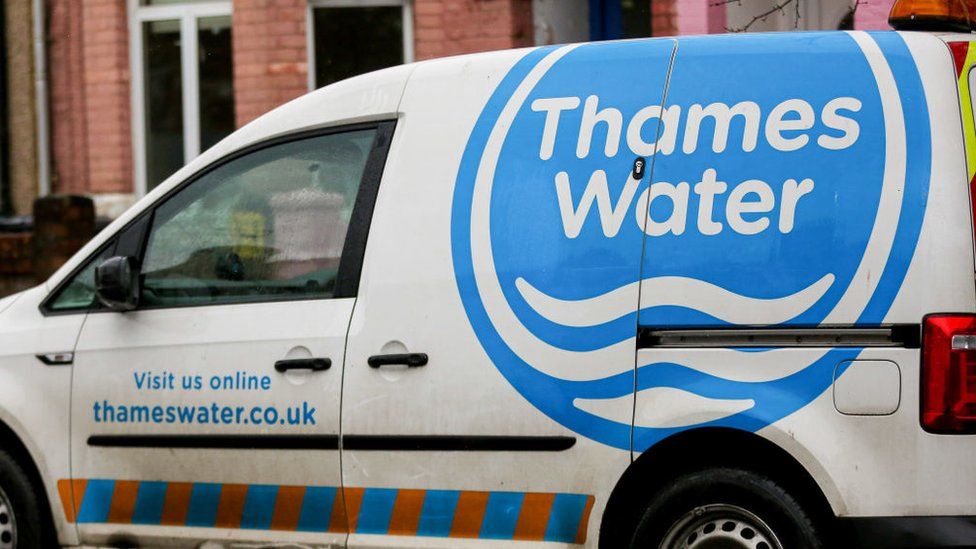Since everyone must buy water to survive, it should be a straightforward business.
For instance, a quarter of the population receives their water exclusively from Thames Water. Actually, there is no way for another water provider to compete. On the surface, it appears to be a permit to print money, a cash machine, and the quickest way to get rich.
It is a natural monopoly, to use economic terminology. There was never a chance to use the power of competition to raise standards, unlike with other privatized utilities like rail or energy. There are no rival water sources vying for the patronage of a household. Additionally, the privatized businesses entered the private sector debt-free.
Many other developed countries decided against privatizing their water systems. In fact, Ireland, one of our close neighbors, only started charging households for water a decade ago.
Therefore, something has gone very wrong. In addition to water and sewage leaks, there are also financial floods and debt leaks. The engineering of our waste water systems does not appear to have received as much attention from the water companies as financial engineering has.
As a result, bathers rebel against abhorrent standards in waterways and beaches, leading to a growing public backlash against standards in the privatized water system. According to economist John Kenneth Galbraith, it should have been called the Affluent Society rather than the Effluent Society.
Thames Water stands out due to its high level of debt, which is close to regulatory limits and significantly higher than those of other water companies at 80% of its value. For leaks, sewage pollution, and water treatment, it ranks joint last in the league tables according to standards.
Although the debt is complicatedly set up, we do know that a large portion of it is based on the Retail Prices Index, which is currently rising by more than 11%. Thames has made a big deal out of not paying any dividends to its shareholders, but there are other ways for them to make money.
Having extracted sizable dividends, the previous owners, Australian financiers Macquarie, left the business £10 billion in debt (up £9 billion). All of this was perfectly legal under the system, but it was also a byproduct of the extremely low interest rate environment at the time.
Due to the lack of competition, the regulator now has a harder time holding businesses to high standards. The evidence from the privatized utilities suggests that regulators prioritized keeping costs as low as possible when performing their duties. The financial engineering taking place at headquarters behind closed doors garnered less attention and knowledge.
In fact, water companies were masters at exploiting the rules that already existed to maximize their short-term profits. The coalition government also ordered a report in 2010 in response to water companies' complaints about Ofwat's burdensome regulations.
It was successful in the short run. Bills were kept to a minimum. Because of the cheap refinancing at extremely low interest rates, shareholders made enormous profits.
Governments transferred responsibility to the private sector in order to settle debts. Significant investment did take place. In hindsight, it was insufficient.
The Thames super sewer, the largest single investment, was only finally pushed through before Brexit due to repeated fines from the EU, not British politicians, regulators, or industry initiative.
Although the water industry has a natural monopoly, it does not have a monopoly over the environment or on nature. The public's consciousness has now been permanently inscribed with vivid images of sewage pollution on beaches and in waterways. Among the areas up for grabs in the upcoming election, this is particularly politically relevant. It never had to be a contentious political issue. right now.
The amount that could be spent on upgrading the sewage and water systems is comparable to the question, "How long is a piece of string?". There are arguments for hundreds of billions, but it is undoubtedly in the tens or hundreds of billions.
Public, political, and regulatory expectations are now very high. They may be higher than what the shareholders in these companies had originally anticipated. Yet today's extremely low interest rates are no longer available.
There may be a temptation for the government to deal with shareholders aggressively. With a connection to environmental performance, the recent Environment Act tightened some dividend regulations.
However, not only is this government—or even a potential Labour government—depending on international sovereign wealth investors and pension funds to finance water infrastructure, but also energy, net zero, and housing.
The exact same investors, three prime ministers, and four chancellors in a single year are the ones who raised questions in the wake of the mini-budget. Some of the tiptoeing might be explained by this. The Labour leadership is also defying union demands to nationalize the water industry.
The other option is public ownership, which would place all debts on the exchequer and result in Defra being fined by the Environment Agency for unacceptable sewage outflows. One suggestion, which might not be well received by the general public, is to extend some leniency to the water companies regarding fines.
We are currently awaiting the shareholders' decision on whether to commit additional funds. But what ought to be a straightforward, tidy business requires its own cleaning procedure.








